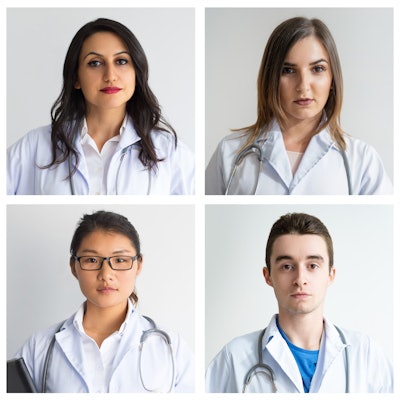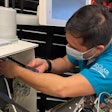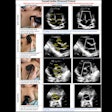
Most matched applicants in interventional radiology residency are satisfied, though applicants and program directors differ in opinion about parts of the matching process, a study published May 12 in the Journal of Vascular and Interventional Radiology found.
A team led by Dr. Monica Matsumoto from the University of Pennsylvania Health System in Philadelphia found that between 2017 and 2022, over 85% of applicants and program directors reported being satisfied. However, the two groups had different thoughts about what should be prioritized, the interview process, and scoring changes.
"These survey findings will help inform applicants and program directors for future match cycles," Matsumoto and colleagues wrote.
The Accreditation Council of Graduate Medical Education approved an integrated interventional radiology residency in 2014. Since then, increased exposure and awareness to the discipline has led interventional radiology to become a popular and competitive residency, the researchers noted.
However, the COVID-19 pandemic quickly changed the matching process, mainly through the use of virtual resources for applicants and directors to complete the process. Along with that, the researchers pointed out that uncertainty among applicants may be attributed to the competitive selection process of interventional radiology residency, implementation of the U.S. Medical Licensing Examination Step 1 pass/fail system, and other variables.
Matsumoto and co-authors wanted to assess the experiences and perspectives of matched applicants and program directors from the 2022 interventional radiology residency application cycle and match. They also wanted to compare the results to a 2017 national survey.
They collected survey data from 68 matching applicants and 47 program directors, also noting that demographic traits were similar aside from male predominance for both applicants and directors.
The team found that 86% of applicants and 87% of directors reported being "satisfied" with match outcomes.
Also, matched applicants applied to more interventional radiology programs compared with 2017. The researchers found that there was 76% interest in medical school interventional radiology groups in 2022 compared with 57% reported in 2017 (p = 0.038). They also reported that attendance at a regional interventional radiology symposium (55%) was more prevalent than the Society of Intervention Radiology annual meeting (30%, p = 0.005).
Finally, 72% of matched applicants had at least one away rotation in interventional radiology, though the team noted that the overall number of rotations decreased from 1.9 in 2017 to 1.4 in 2022 (p = 0.003).
However, the team also found that applicants and program directors have different opinions on some metrics and other factors that affect the matching process. For example, applicants reported more research and abstracts published in 2022 than in 2017 and ranked these as more important. However, directors indicated that other academic accolades, including clerkship grades, medical student performance evaluation, and class should be ranked higher.
Also, 82% of directors reported giving special attention to candidates who completed a visiting rotation at their respective institutions.
When it came to virtual interviews, 60% of applicants and 95% of directors thought that this part of the process resulted in overinterviewing (p < 0.001). However, both agreed that virtual interviews make way for better convenience and accessibility.
The two groups also had different opinions of how changing from numeric scores for U.S. Medical Licensure Examination-Step 1 to a pass/fail system beginning in the 2023 match would impact applicants. Results showed that 61% (n = 39) of applicants said the change would make the application process more stressful compared with 36% (n = 16) of directors who agreed. Another 22% (n = 14) of applicants said the change would make the process easier compared with 39% (n = 17) of directors who agreed.
The study authors wrote that future efforts should aid in improving advising for applicants navigating the application process. This includes adjusting the virtual interview process for applicants and program directors, evaluating downstream effects of the Step 1 system, and expanding on internship options.




















